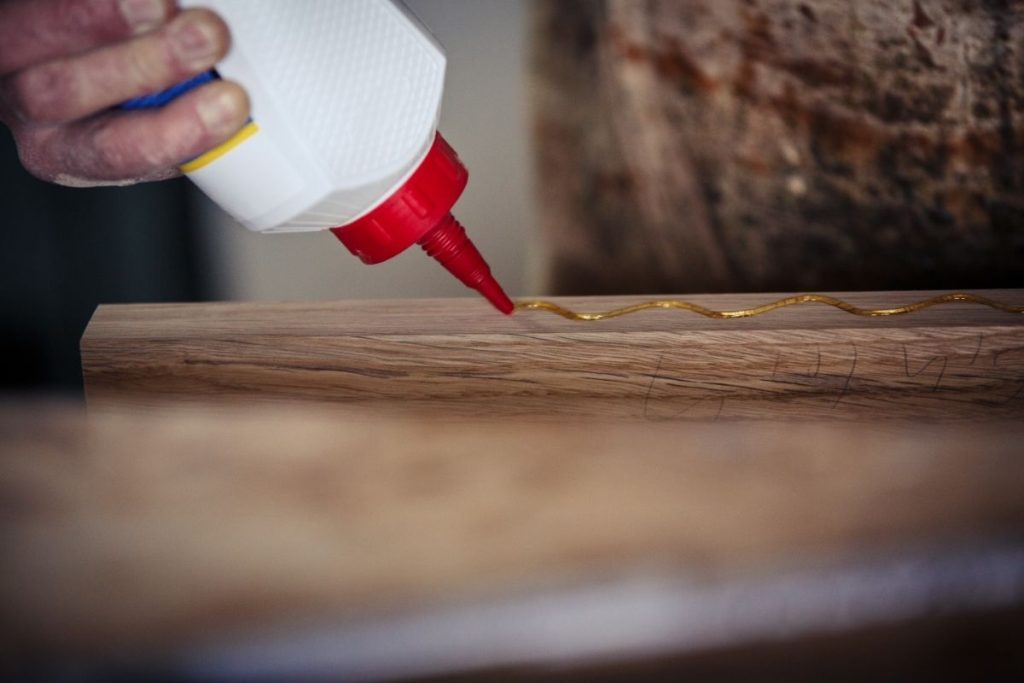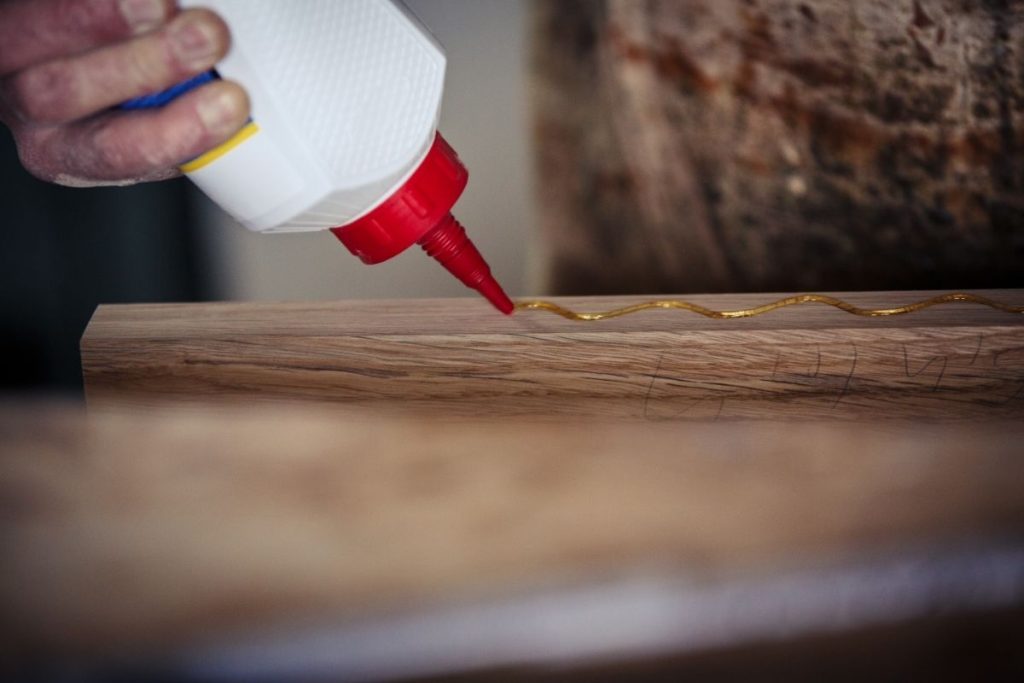Have you ever wondered how long wood glue can last? Well, you’ve come to the right place! Wood glue is an essential tool for carpenters, DIY enthusiasts, and anyone working with wood. But how long can you rely on its adhesive power? Let’s dive in and explore the lifespan of wood glue.
When you’re knee-deep in a woodworking project, the last thing you want is for your carefully crafted pieces to fall apart. That’s where wood glue comes to the rescue! But how long can you count on it to keep everything intact? Stick with me as we unravel the mysteries of wood glue longevity.
Wood glue is a magical substance that bonds pieces of wood together, creating strong and durable connections. But like all good things, it does have a lifespan. So, if you’re eager to find out how long your woodworking creations will stand the test of time, let’s uncover the truth about how long wood glue can truly last.

How Long Does Wood Glue Last?
Wood glue is a popular adhesive used in woodworking projects to bond pieces of wood together. However, if you’ve ever worked on a project that required glue, you may have wondered how long the bond will last. In this article, we will explore the factors that affect the durability of wood glue and provide you with valuable information on how long you can expect your glue joints to hold up. So, let’s dive in and discover the longevity of wood glue!
Factors Affecting the Longevity of Wood Glue
Wood glue is designed to create a strong bond between wood surfaces. However, several factors can influence how long that bond will hold up over time. Here are three key factors that affect the longevity of wood glue joints:
1. Type of Wood Glue: Different types of wood glues have varying degrees of durability. The most common types of wood glue include PVA (polyvinyl acetate), epoxy, and polyurethane. PVA glue is the most popular and has a moderate lifespan. Epoxy glue, on the other hand, provides a stronger and longer-lasting bond, while polyurethane glue is known for its exceptional durability.
2. Type of Wood: The type of wood you are working with can also impact how long the glue will last. Softwoods, such as pine or cedar, tend to have more open pores, which allows the glue to penetrate deeper and create a stronger bond. Hardwoods, like oak or maple, have tighter pores, which can make it more challenging for the glue to bond effectively.
3. Environmental Conditions: The environment in which the glued wood is placed plays a significant role in how long the bond will last. Extreme changes in temperature and humidity can weaken or break down the adhesive over time. If your glued wood is exposed to moisture or intense heat, it may compromise the integrity of the bond and reduce its lifespan.
Tips for Maximizing the Longevity of Wood Glue
While the lifespan of wood glue depends on various factors, there are steps you can take to ensure that your glue joints remain strong and durable for as long as possible. Here are three tips for maximizing the longevity of wood glue:
1. Proper Surface Preparation: Before applying wood glue, it is crucial to prepare the surfaces you wish to bond properly. Ensure that they are clean, dry, and free from any oil, dust, or debris that could hinder the bonding process. Use sandpaper to smooth rough surfaces that may prevent a tight bond.
2. Adequate Clamp Time: Wood glue requires pressure to form a strong bond. Once you have applied the glue, use clamps or other means of applying pressure to keep the pieces of wood in place until the glue has fully dried and cured. This can take anywhere from a few minutes to several hours, depending on the type of wood glue you are using.
3. Maintain Stable Environmental Conditions: To maximize the lifespan of your wood glue joints, it is crucial to maintain stable environmental conditions. Avoid exposing the glued wood to extreme temperature changes or excessive moisture. If possible, store your woodworking projects in a controlled environment to minimize the impact of external factors on the glue’s longevity.
Common Questions About the Longevity of Wood Glue
1. How long does wood glue take to dry? The drying time of wood glue varies depending on the type and brand. PVA glue generally dries in about 30 minutes to an hour. Epoxy glue may take a few hours to cure completely, while polyurethane glue can take up to 24 hours or more.
2. Can you speed up the drying time of wood glue? Yes, you can accelerate the drying time of certain wood glues. Some manufacturers offer accelerators or activators that can be applied to the glue to speed up the curing process. However, it is essential to follow the manufacturer’s instructions and guidelines when using these products.
3. Can wood glue be used for outdoor projects? PVA glues, which are the most common type of wood glue, are not suitable for outdoor use as they are not waterproof. However, certain types of wood glues, such as polyurethane or epoxy, are more resistant to moisture and can be used for outdoor projects. Always check the label or consult the manufacturer to ensure the correct type of glue for your specific application.
In summary, the longevity of wood glue depends on factors such as the type of glue, the type of wood, and the environmental conditions. By considering these factors and following proper bonding techniques, you can ensure that your wood glue joints remain strong and durable for an extended period. Remember to choose the appropriate glue for your project and take the necessary steps to provide a clean and stable environment for your glued wood. Happy woodworking!
Key Takeaways: How Long Does Wood Glue Last?
- Wood glue typically has a shelf life of about one year.
- Proper storage in a cool and dry place can extend the life of wood glue.
- Using expired wood glue may result in weak bond and potential failure.
- Test the glue’s effectiveness by performing a small bond strength test before using it on important projects.
- Consider purchasing smaller containers of wood glue to avoid wastage due to expiration.
Frequently Asked Questions
Welcome to our FAQ section where we answer some common questions about the longevity of wood glue. Whether you’re working on a DIY project or a professional carpenter, understanding how long wood glue lasts is important for the success of your project. Read on to find the answers you’re looking for!
How long does it take for wood glue to set?
Wood glue typically sets within 30 minutes to 24 hours, depending on the type of glue and environmental conditions. Some fast-setting wood glues can bond within minutes on porous surfaces, while others may need several hours to dry. It’s important to follow the manufacturer’s instructions for the specific wood glue you are using to ensure proper setting time.
Factors like temperature, humidity, and the type of wood being bonded can also affect the setting time. Higher temperatures and lower humidity levels generally speed up the setting process, while the opposite can delay bonding. It’s best to let the glue fully cure before applying any stress to the joint to ensure a strong and durable bond.
What is the shelf life of wood glue?
The shelf life of wood glue can vary depending on the brand and type of glue. Generally, unopened wood glue can last for up to 2 years if stored in a cool, dry place, away from extreme temperatures. However, once the glue has been opened, its shelf life can be significantly reduced.
Exposure to air can cause wood glue to thicken and eventually become unusable over time. To extend the shelf life of opened wood glue, it’s important to store it properly. This can be done by squeezing out any excess air from the bottle, tightly sealing the cap, and storing it in a cool place. If the glue becomes too thick or clumpy, it’s best to replace it with a new bottle for optimal performance and bonding.
Can wood glue be used after its expiration date?
Using wood glue past its expiration date is not recommended. The expiration date is an indication of when the glue is expected to perform at its best. Expired glue may have reduced bonding strength or may not bond properly at all, leading to weak joints that can fail over time.
If you’re unsure about the quality of your wood glue, it’s best to invest in a new bottle to ensure reliable and long-lasting results. Using expired glue can jeopardize the integrity of your woodworking projects and may lead to costly repairs or replacements in the future.
How long does wood glue take to fully cure?
The time it takes for wood glue to fully cure can range from 24 hours to several days, depending on various factors. While the glue may appear dry on the surface within hours, it usually takes longer for the bond to reach its maximum strength.
Factors like temperature, humidity, and the type of wood being bonded can affect the curing time. Higher temperatures and lower humidity levels generally accelerate the curing process. However, it’s important to allow ample time for the glue to cure fully before subjecting the joint to stress or loading, ensuring a strong and reliable bond that will stand the test of time.
What can affect the longevity of wood glue bonds?
Several factors can affect the longevity of wood glue bonds. One of the primary factors is the quality of the wood glue itself. Opting for a high-quality wood glue with a strong bond strength and a long-lasting formula can significantly enhance the durability of the joint.
Additionally, environmental factors such as temperature and humidity can impact the longevity of wood glue bonds. Extreme temperature fluctuations or high humidity levels can weaken the glue and potentially cause joint failure over time. Proper surface preparation, ensuring clean and dry surfaces, and following the manufacturer’s instructions can also help improve the longevity of wood glue bonds.

Long Term Glue Test 3 Years in
Summary
Wood glue is a handy tool when it comes to joining pieces of wood together. It forms a strong bond that can last for a long time. However, the lifespan of wood glue can vary depending on different factors. The type of wood glue used, the conditions it is exposed to, and the application method all play a role in how long it will last.
Proper storage and usage are crucial in maximizing the lifespan of wood glue. Keeping the bottle tightly sealed and stored in a cool and dry place can help extend its shelf life. Additionally, following the manufacturer’s instructions and applying the glue evenly and in the right amount will ensure a strong and durable bond. So, if you take care of your wood glue, it can last for a considerable amount of time and help you with your woodworking projects.
